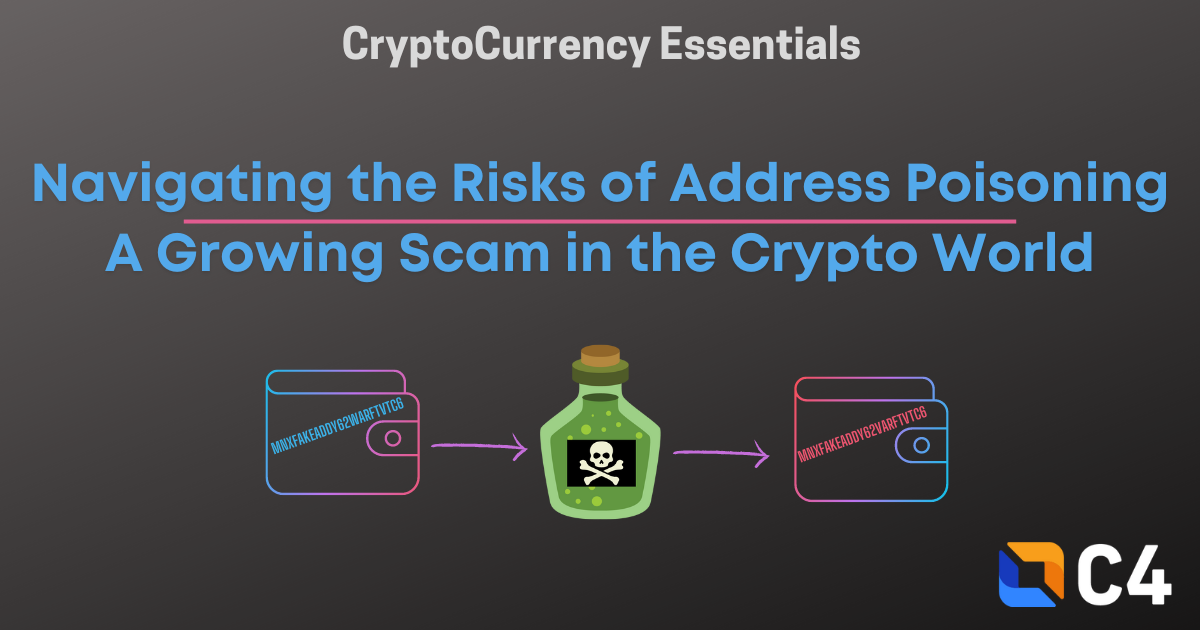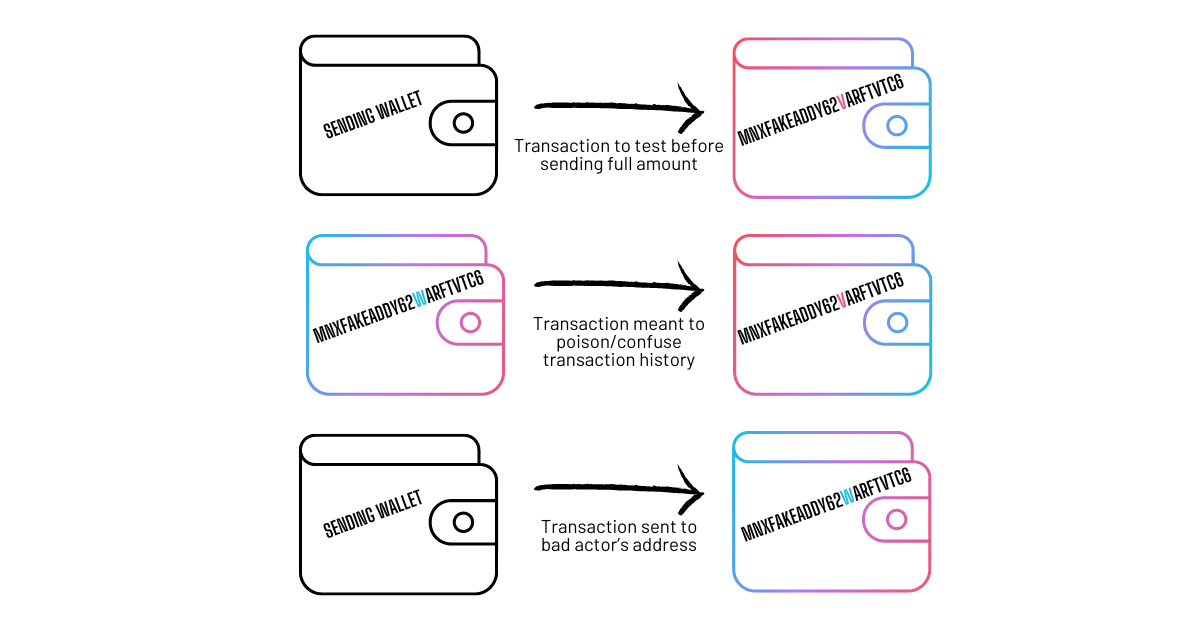
Navigating the Risks of Address Poisoning: A Growing Scam in the Crypto World
In the ever-evolving landscape of cryptocurrency, where innovation and technology leapfrog at a rapid pace, so do the strategies of scammers. One such emerging and insidious tactic is the 'Address Poisoning Scam.' This blog aims to shed light on what address poisoning is, how it works, and, most importantly, how you can protect yourself from falling victim to this cunning scam.
What is Address Poisoning?
In May 2024, the DEA lost $55,000 in an Address Poisoning scam. Address poisoning is a relatively new type of scam in the crypto world. It exploits a key feature of cryptocurrencies - the public visibility of transactions on the blockchain. Scammers target the public transaction history of users, inserting their own wallet addresses that closely resemble those of legitimate users. This subtle manipulation can easily go unnoticed but can lead to significant losses for unsuspecting victims.
How Does Address Poisoning Work?
The scam operates on the premise of human error. Most crypto users rely on copy-pasting wallet addresses when making transactions. Address poisoning takes advantage of this by 'poisoning' the transaction history with similar-looking addresses. When a user copy-pastes an address for a new transaction, they might accidentally choose the scammer's address instead of their own. Once the crypto is sent to this address, it's nearly impossible to recover.

The Role of Vanity Addresses:
Vanity addresses, which contain recognizable words or patterns, can make the scam more effective. These specially crafted addresses are more memorable and can easily be confused with a user’s actual address, making the scam harder to spot.
How to Protect Yourself:
- Double-check Addresses: Always verify every character of the wallet address before confirming a transaction. This simple step can be your first line of defense.
- Use Address Book Features: Many wallets offer the option to save and label frequently used addresses. Utilize this feature to minimize the risk of selecting a poisoned address.
- Be Cautious with Transaction Histories: Be aware that transaction histories can contain these poisoned addresses. Relying solely on them for address information is risky.
- Educate Yourself: Stay informed about the latest scams in the crypto space. Awareness is a powerful tool in combating these threats.
- Use Hardware Wallets: For added security, consider using a hardware wallet, which reduces the risk of falling for such digital traps.
Address poisoning is a stark reminder that in the digital age, even the most minor details require our attention. In the world of cryptocurrency, where transactions are irreversible, the importance of vigilance cannot be overstated. By educating ourselves and adopting cautious practices, we can stay one step ahead of scammers and protect our digital assets.
Stay Safe and Informed:
Remember, the crypto journey is as much about staying secure as it is about exploring new financial frontiers. Stay safe, stay informed, and let's continue to navigate the dynamic world of cryptocurrency with confidence and caution.
This article was written by our CryptoCurrency Essentials (CCE) Committee, with special thanks to committee member Manan Vora.
Disclaimer
The information presented in this article is for educational and informational purposes only. It does not constitute financial advice, investment recommendations, or any form of endorsement.
The views and opinions expressed by individuals in this article are solely those of the speakers and do not necessarily represent those of C4 or any other organizations with which they are affiliated.
The mention or inclusion of any individuals, companies, or specific cryptocurrency projects in this video should not be considered as an endorsement or promotion.
Regulations and legal frameworks around cryptocurrencies may vary in different jurisdictions. It is your responsibility to comply with the applicable laws and regulations of your country or region.
